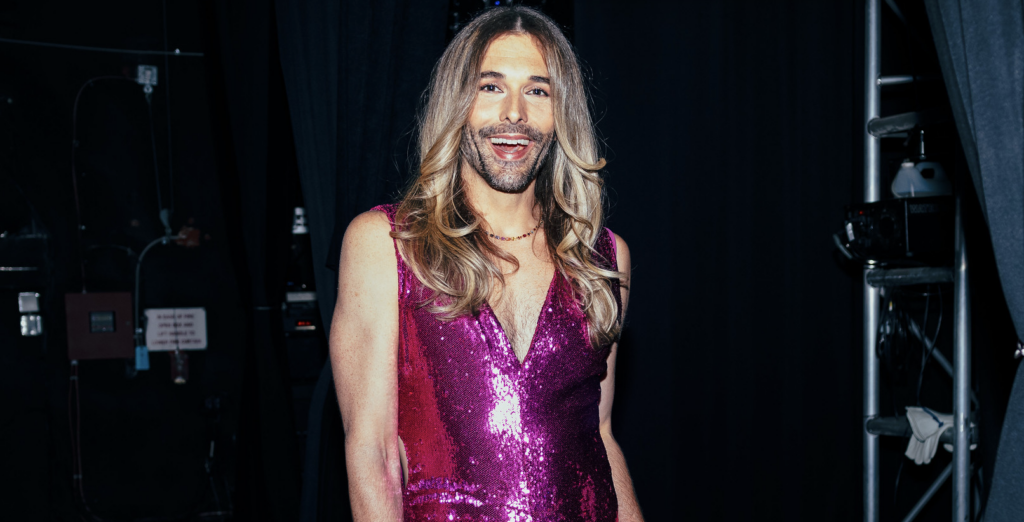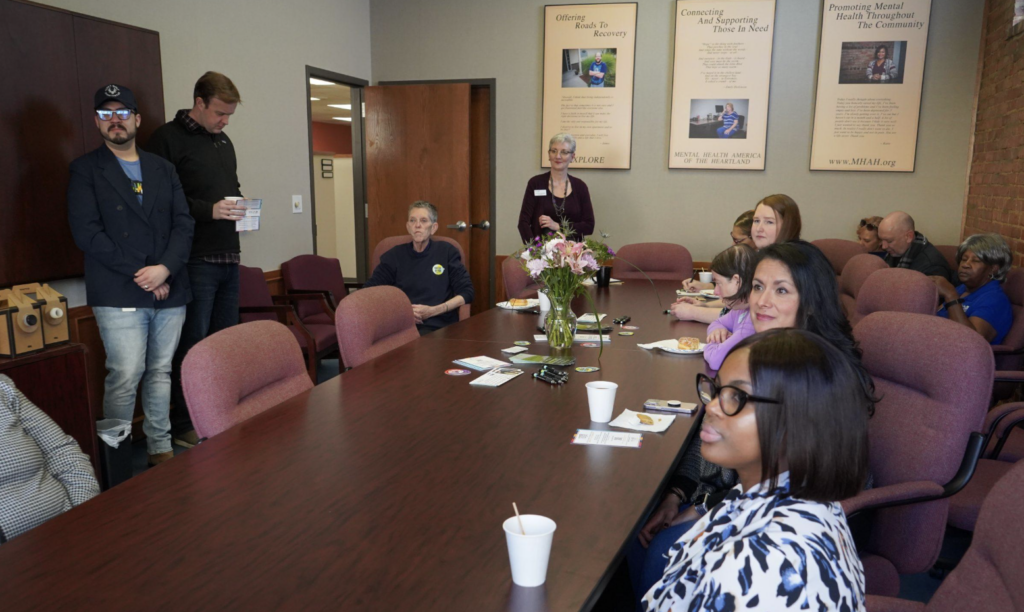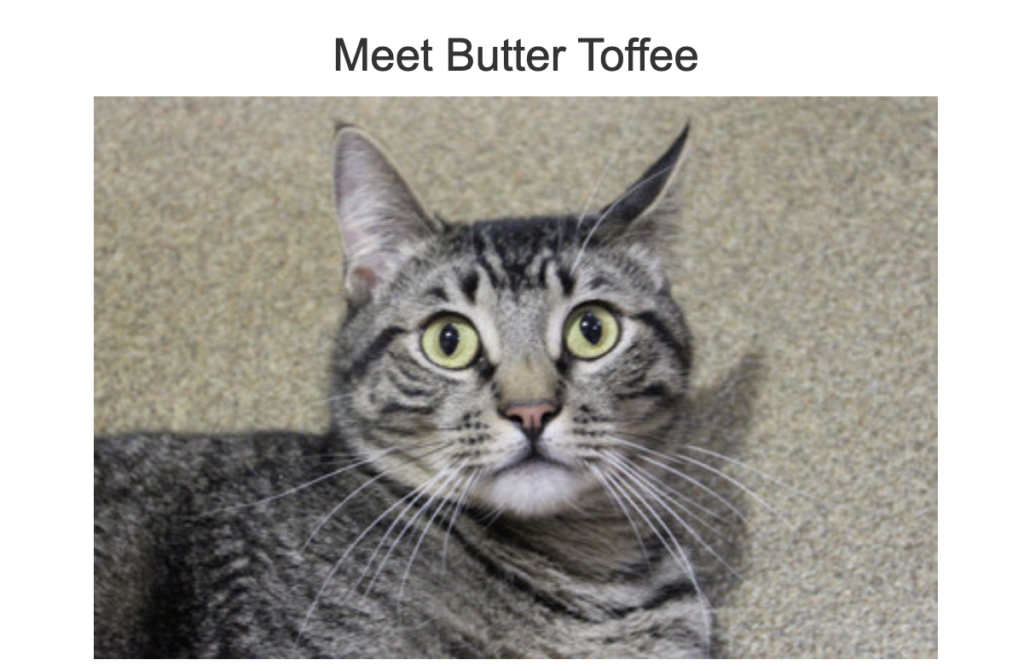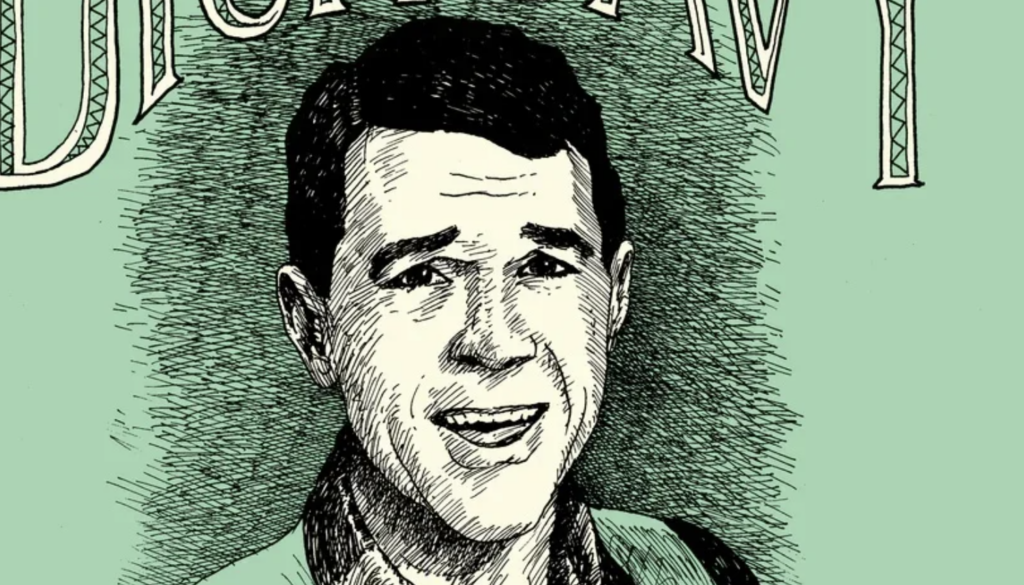Author Ashley Ream’s new novel The Peculiar Gift of July proves we need more magical realism
Writer Ashley’s Ream’s new book, The Peculiar Gift of July, out this week from Dutton, is a marvelous summer read for so many reasons. The story of Anita, a woman running a small grocery store on a remote island in the Pacific Northwest, who takes in July, the adopted daughter of a long-lost cousin, is replete with magical realism and emotional beats sure to make any reader waver between devouring it in one go and wanting to make the joy of reading it last as long as possible.
This is Ream’s third published novel, after her 2012 debut, Losing Clementine, and 2016’s The 100 Year Miracle, and was not without its challenges, including being written three whole times.
Add in the fact that the author is a former Kansas City resident who interned right here at The Pitch in her late teens, and we were very excited to hop on Zoom ahead of the release of The Peculiar Gift of July.
The Pitch: You worked as an intern for The Pitch?
Ashley Ream: I was. I was an intern, and then I was a book reviewer after I was an intern.
I love the fact that you were a book reviewer and you have gone on to be a writer.
That worked out, didn’t it? Well, I went to journalism school, which I already knew I was gonna do when I had the internship with The Pitch. It was right before I started college and my thought process was that I had known I wanted to write books since I knew that books were not organic. I have a distinct memory of being in the Mid-Continent public library in Independence, Missouri, with my mother and realizing that books were a thing someone made and did –versus like a rock or a tree or a flower–it didn’t just happen and being like, “Yep, that’s it. I’m good. I’m in. Let’s do it.”
Did that really help move you along in terms of exposing you to different stuff? I feel like anybody who’s a book nerd can point to librarians who were like, “Read this.”
I got fortunate because my mom started as a teacher and she taught typing and shorthand fun, and she was a huge reader. I mean, my memory of my mom is just always “nose in a book.” She practically walked with a book in front of her face, like Belle in the animated movie.
Every single week, she would take me to the library, and I was allowed to get 10 books from the Mid-Continent Public Library. I was incensed that I was only allowed to get 10 books. Ten books was entirely insufficient. I found out as an adult that that was the library’s rule, not hers, so for like 20 years, I held it against her, but yeah, she was kind of my gateway drug. My mom was my pusher, and that’s really how I fell in love with books.
How do you make the jump from reviewing books to writing books, although I assume it’s more of a climb?
The other way around. I started writing short stories when I was really young, like seven. I had an electric typewriter and a really tiny bedroom, so I had to keep it stashed under my bed. However, I would pull it out, set it up, and type out my short stories.
The reason I went to journalism school is I was trying to figure out a way that I could write for a living and still eat because I knew I’d have to pay rent and buy food. This actually turned out to be a terrible plan, but I didn’t know it at the time. I didn’t quite realize how hard it would be to write all day and then go home to write all day or write all night, so I actually ended up, after a while, in journalism school.
I went to the University of Missouri, which has an incredible journalism program and the thing that makes it so cool is that you spend your first two years getting your general ed stuff that everybody has to take–statistics and psychology and whatever you have to take–and then your last two years is almost entirely practical.
Whatever your thing is, if you’re into newspapers or TV or whatever, they own a TV station, they own a radio station, they own a local newspaper and you just go work there for free. Actually, not for free. You pay them to work there, but by the time you graduate, you have two years of experience. It was in those two years that I learned that this was not gonna work, so I switched over staying in newspapers and staying in journalism, but I could draw a little, so I became a graphic artist, and so I did all of your maps and your charts and your diagrams and all those sorts of things, so I was still in newspapers and still definitely considered myself a journalist, but I was able to do that during the day, then go home and write at night.
I already had that plan when I started at The Pitch, like I was gonna be a novelist. I did my summer and, apparently I did it well enough, ’cause they let me keep writing book reviews. I am absolutely certain that the readers who were reading my book reviews had no idea they were taking advice from someone who could not buy a beer.
 How has your time in the Pacific Northwest influenced this novel?
How has your time in the Pacific Northwest influenced this novel?
The way it has influenced me as a human is probably the best way to answer that. My husband and I both loved the Pacific Northwest from a distance, and I think it probably came from the time that we were growing up.
I worked at The Pitch the summer of 1996, so it was all flannel and grunge and it was Mudhoney and the Screaming Trees and it was all of that, so Seattle was just cool, right?
Then, when I was actually able to come here as an adult who had grown out of that and time had moved on, it turned out to be a spiritual home for me. My husband and I are huge trail runners.
I’m an outdoor cat, despite my job, and just going out and being in the woods and it’s hard to explain to someone if you’ve not been, how many colors of green exist here. Of just going out in these trees. They’re hundreds of years old and they’re these giant redwoods that you can’t put your arms around and you cannot see the ground. It is covered in these prehistoric ferns, and it’s just the air smells like wood.
It’s truly incredible and from that moment on, I was like, “I am in. How do I get here?” It took probably 10 or 15 years for my husband and me to work it out. Jobs just never quite aligned and then, once we were able to make it work, once he got a job offer out here, we were hanging on like a cat–I’ve got my claws in and I’m not letting go. It’s rainy and it’s dark and it’s atmospheric and it’s everything you want as a writer. It’s awesome and it takes a certain kind of person, I think, to really, truly thrive in that environment.
The book isn’t set in Seattle. It’s set on a tiny island so far north and west of the northwest that they are in danger of having to learn the Canadian national anthem. It’s isolated and it’s rainy and it’s all of those things, and that breeds a certain amount of eccentricity that’s awfully fun to write about.
I know Ebey’s End is not a real place, but it is influenced by real places. In the afterword, you mentioned Bainbridge Island and paces like that and, having been to Bainbridge Island during the tourist times I can understand exactly how very much an isolated place like that can change and breed eccentricity. The fascinating thing about this book is that you have so many characters and you’re telling so many stories and they’re all very unique and individual, but they have this thread running through all of their stories where they are keeping things from people to keep themselves safe and to keep other people comfortable, but it results in everybody kind of being just low-grade, functionally unhappy.
You’re the first person to put it like that, and I think you’re absolutely right. Like, nobody’s miserable, but in The Peculiar Gift of July, nobody’s really happy or thriving.
What was the grain of sand that this book coalesced around?
I think to answer the story, I have to tell you how this book came to be and it was a hard birth. It’s definitely the most difficult book I’ve written. I’m gonna say something that’s incredibly immodest and my Midwestern soul does not wanna say it, but I think it’s the best book I’ve ever written, but it was a hard road to get here. I wrote this book three times, and I don’t mean I wrote three drafts. I wrote 18 drafts, not including the copy edits. I mean, I wrote three different versions of this book.
In the first version, July was in her forties, and she lived on a farm, and that didn’t work at all. She was way too isolated. The book didn’t have the heart it needed, and so then I moved her into town and Ebey’s End always existed, but in the second version, it kind of became what it is now–a community and we’ve got more of the characters, but not all. Anita did not exist yet, and she’s one of the main characters of the entire book.
And at this point, July was in her early 20s and she lived with Tiny at the bakery. That still didn’t work. She was too old. There was no vulnerability in other people to deal with another adult. It just did not work. She wasn’t open enough and so other people couldn’t be open with her.
Late in the second draft, I started writing about the grocery store, and it was just a little side glance. You get one scene in the whole book. Anita would just walk past a window, but anytime we were anywhere near that store, the story got better. I didn’t exactly know why, but at this point, I’ve written this book two times. I was not thriving. I was one of those folks on Ebey’s End.
I remember I just stood in my kitchen and sobbed, and my husband, bless his heart, looked like he had just made some terrible life choices and was trying to figure out how to get out of them. It was not good–I have an agent who’s waiting for a book and I’ve written it twice and I can’t give it to her because I know it’s not where it’s gonna be.
I was really at my wits end when I started version three but it was when July was a child and when I could flush out Anita and I had this woman who wanted absolutely nothing but for things to stay exactly the same who was lonely and not admitting she was lonely, who had built all of these rules for herself about not interfering with customers who come into the store and not connecting with them, because of course she doesn’t want to get too close to them because she’s afraid, but she doesn’t know that she’s afraid that they’re gonna get too close to her and then, all of a sudden, July–who is nothing but a walking, talking ball of interference –comes into her life basically against her will.
[July] begins changing everything and then suddenly, the book works because everybody’s vulnerable. Everybody’s sort of showing their heart in this way to this orphan girl, ’cause how could you not? And then, you know, while they’re distracted by that, she’s reaching in and tweaking everyone’s life until nothing is exactly the way it was before, as children will do.
What makes the book work so well is that–as it goes through and she is the walking talking ball of interference and interjection–by novel’s end things, have changed drastically, but what made it feel satisfying–and I feel like this is going to be contradictory when I say the next thing–is that not everybody ends up happy. There are some people who, if not in worse shape than when we first met them, things have not improved. It’s just that idea that, for all of the magical realism, The Peculiar Gift of July feels real.
I don’t like pretty bows. I’ve never liked pretty bows. I like satisfying endings. I don’t like unrealistic endings. I think it feels rude. I think it disrespects the intelligence of the reader.
I appreciate the fact that, despite one of your main characters being a 14-year-old girl, The Peculiar Gift of July is still being marketed as something adults can read, rather than as a YA novel. Was that something you aimed for as part of the release of it?
It never occurred to me until I was done that what you’re saying is true. Fortunately, nobody at Penguin or Dutton ever suggested that it wasn’t an adult book. That would’ve been a very hard conversation to have, I think, because it is absolutely an adult book.
It’s kind of interesting because the more books I write, the more magic realism I put in my books because, well, first of all, I just love it, but it’s a really great tool. The more fairy dust I can sprinkle on a book, the more meat I can put on the bones without it dragging the book down and it’s definitely been super true of this book, above and beyond any others because it is a book about a 14-year-old girl who changes people’s life with coconut cream pie, but it is also a book about parental loss and depression and adultery and all of the loneliness and all of these really difficult topics. Being who you are and loving who you love, and in really difficult circumstances.
It has been kind of a universal theme for early readers of this book that they say, “I loved this book. I read it in two days. I couldn’t put it down. Super fun,” and then they say, “And then the next day, I got to thinking about it …” That’s kind of what the magic realism buys me. It lets me sneak those things in, ’cause I do wanna give you things to think about.
When people ask, “What kind of books do you write?” I have a really hard time answering that because it’s not a mystery, it’s not a romance. I just say I write book club books. I wanna write books that you wanna talk to your friends about.
This book had a difficult birth. It is now done. Did getting this done make you want to take a break, or did it mean that, all of a sudden, you have all of these other ideas that are finally trying to burst free, and you have almost too many ideas?
Maybe a little bit of the second. I think writing books is so hard that, if you don’t start right away, you might not start. As soon as I am done, I start trying to birth something new when copy edits are coming through and stuff.
I’m always frustrated. I always feel like, “I’ve written enough books now. I wrote that last one three times. I should know how to write books,” but the thing about writing books that is so true and it’s so angry thinking that it is true, is that once you’ve figured out how to write a book, you only know how to write that one book, and now you have to write the next book, and it’s an entirely different book.
I think it’s kind of a universal truth–it actually doesn’t get easier. What does help is knowing what you’ve been through before and that you got through it, so there’s that. So yeah, I’m definitely working on the next one and you can certainly expect just as much magical realism, if not more in the next one, because that’s just something I’m thoroughly in love with and I don’t know if there’s quite enough of it.
Ashley Ream’s The Peculiar Gift of July is out now from Dutton.






